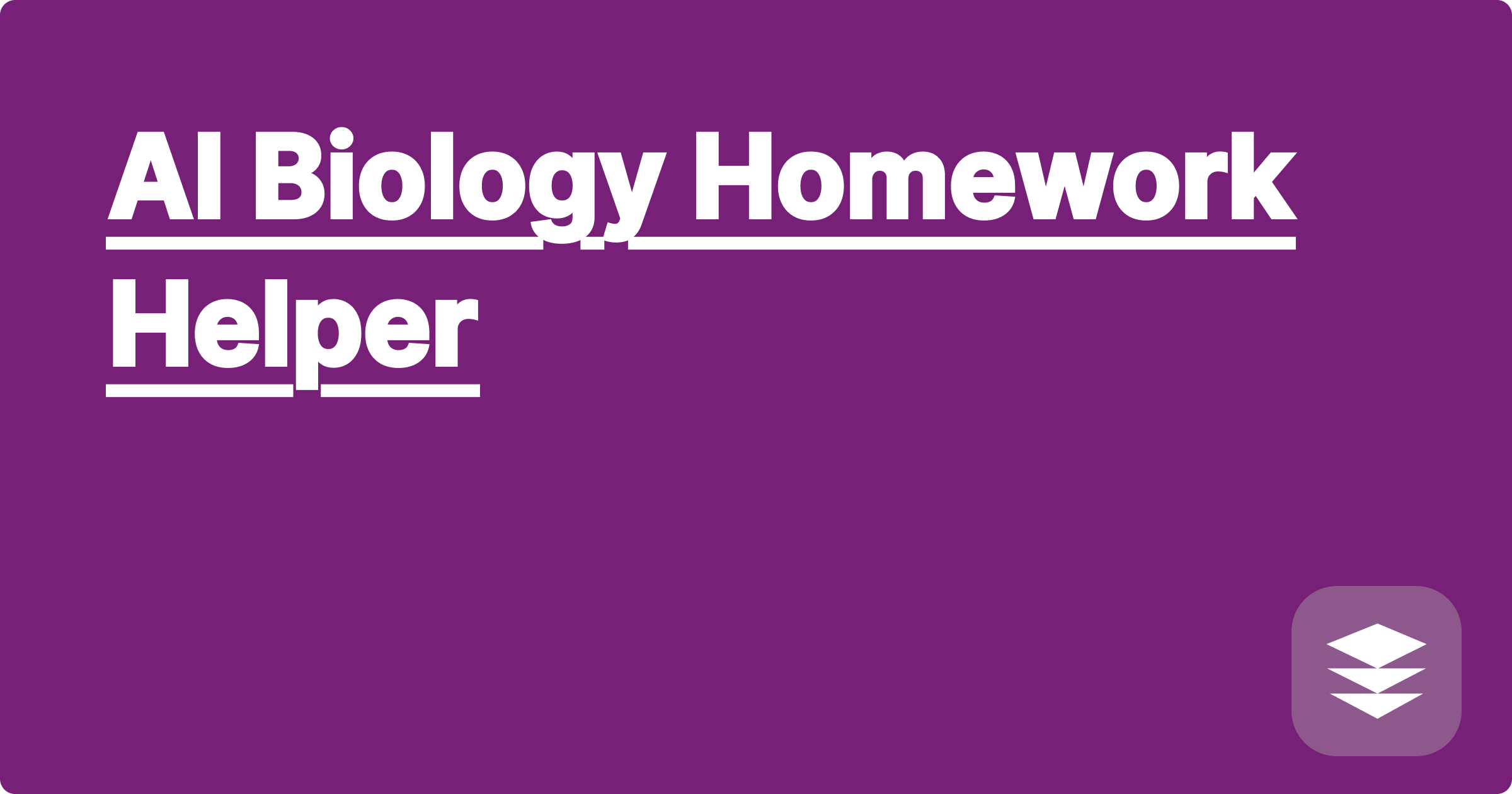
STEM fields, particularly biology, often present students and researchers with complex challenges. These challenges range from understanding intricate biological processes and analyzing large datasets to applying theoretical knowledge to real-world problems. Artificial intelligence (AI) is emerging as a powerful tool to address these challenges, offering innovative solutions and accelerating the pace of discovery. AI can assist with everything from literature reviews and data analysis to generating hypotheses and designing experiments, ultimately empowering STEM professionals to work more efficiently and effectively.
This rise of AI-powered tools has profound implications for STEM education and research. For students, AI can provide personalized learning experiences, offering tailored support and helping them grasp difficult concepts. Researchers can leverage AI to analyze massive datasets, identify patterns, and generate novel insights, accelerating the pace of scientific discovery. Embracing these AI tools is no longer optional; it's becoming essential for success in the rapidly evolving landscape of STEM.
Biology, as a field of study, is characterized by its complexity. Students often grapple with vast amounts of information, ranging from molecular mechanisms to ecosystem dynamics. Understanding these intricate processes and applying them to problem-solving scenarios can be particularly challenging. Traditional learning methods, while valuable, often struggle to provide the personalized support and interactive learning experiences that many students need to truly master these complex concepts. Furthermore, biological research often involves analyzing large and complex datasets, requiring sophisticated computational skills and statistical knowledge. These challenges can create significant hurdles for both students and researchers, hindering their progress and limiting their potential.
AI tools like ChatGPT, Claude, and Wolfram Alpha offer powerful solutions to these challenges. ChatGPT and Claude, for example, can be used to explain complex biological concepts in a conversational and accessible manner. Students can ask specific questions about topics they find difficult, receiving tailored explanations and examples. These AI tools can also assist with literature reviews, summarizing key findings from research papers and identifying relevant studies. Wolfram Alpha excels at computational tasks, allowing users to perform complex calculations, analyze data, and even visualize biological structures. By integrating these AI tools into their workflow, students and researchers can overcome many of the challenges associated with learning and conducting research in biology.
Engaging with these AI tools effectively involves a structured approach. Begin by clearly defining the problem or question you want to address. For example, if struggling to understand the Krebs cycle, formulate specific questions about the steps involved or the overall purpose of the cycle. Next, select the appropriate AI tool. For conceptual questions, ChatGPT or Claude are excellent choices. For calculations or data analysis, Wolfram Alpha is ideal. Then, input your question or problem into the chosen AI tool, ensuring clarity and precision in your language. Carefully review the output generated by the AI, critically evaluating the information provided. Remember that these tools are assistants, not replacements for critical thinking. Finally, refine your query or explore related questions to deepen your understanding and gain a more comprehensive perspective.
Consider a student struggling to understand the process of DNA replication. They could ask ChatGPT, "Explain the steps of DNA replication, including the enzymes involved." ChatGPT would then provide a detailed explanation of the process, including the roles of enzymes like DNA polymerase and helicase. As another example, a researcher could use Wolfram Alpha to analyze gene expression data. By inputting the data into Wolfram Alpha, they could perform statistical analyses, identify differentially expressed genes, and even generate visualizations of the data. Furthermore, a student could use Claude to summarize a complex research paper on the effects of climate change on biodiversity. By providing the paper's abstract or full text to Claude, the student could receive a concise summary of the key findings, saving valuable time and effort.
To maximize the benefits of AI in STEM education and research, several strategies are crucial. First, develop a critical mindset. Always evaluate the information provided by AI tools, cross-referencing with reliable sources and considering potential biases. Second, focus on understanding the underlying concepts, rather than simply relying on AI for answers. Use AI as a tool to enhance your learning, not as a shortcut. Third, experiment with different AI tools to discover which ones best suit your needs and learning style. Fourth, integrate AI tools into your existing workflow, using them to streamline tasks and enhance your productivity. Finally, remember that AI is a constantly evolving field. Stay updated on the latest advancements and explore new ways to leverage these powerful tools.
To move forward, embrace experimentation. Explore different AI tools, try various prompting techniques, and discover how these technologies can best support your learning and research goals. By actively engaging with AI and developing a critical understanding of its capabilities and limitations, you can unlock its full potential and thrive in the exciting world of STEM.
AI for Chemistry: Ace Your Tests
AI Statistics Helper: Data Mastery
AI for CAD: Design Optimization
AI Essay Writer: STEM Research